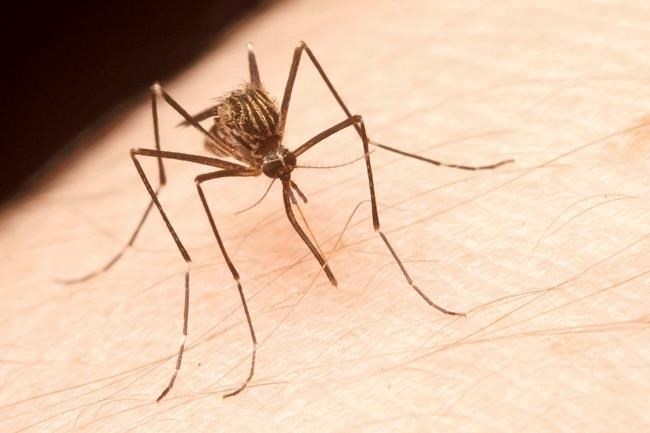
It's West Nile virus season.
Image Credit: THE CANADIAN PRESS/HO-Sean McCann
August 07, 2019 - 12:17 PM
KELOWNA - The mosquitos most likely to carry the West Nile virus are about to hit their stride.
In August mosquitos get more active. West Nile virus — a disease that is spread from infected crows, ravens, magpies and jays to humans through mosquito bites — was first detected in B.C. in the South Okanagan during the summer of 2009.
Since then there have been five human cases, all locally acquired in the Okanagan, according to an Interior Health Authority media release. Last year the virus was detected in birds and a horse in the East Kootenay area, confirming the virus is present there as well. Several parts of Canada and the U.S. continue to report ongoing West Nile virus activity.
Interior Health says the risk of infection from handling birds is very low; however, you should not use your bare hands to handle wild birds (dead or alive). If you need to move a dead bird, precautions should be taken. Unusual clusters of dead birds can be reported to the B.C. Interagency Wild Bird Mortality Investigation at 1-866-431-BIRD (2473).
Mosquitoes can also transmit the West Nile virus to horses and occasionally to other animals. Horse owners are advised to contact their veterinarians for information about equine vaccines for West Nile virus.
The risk of becoming seriously ill from West Nile virus infection is low for most people; however, the elderly and those with compromised immune systems are more at risk, Interior Health says. There are things everyone can do both at home and while travelling to reduce the risk of infection. Any activity that prevents mosquitoes from biting or breeding can help to reduce the risk of becoming infected with the West Nile virus.
Interior Health works closely with the B.C. Centre for Disease Control and Canadian Blood Services to monitor West Nile virus activity. Surveillance includes screening the blood supply and reporting human as well as animal cases.
To contact a reporter for this story, email Kathy Michaels or call 250-718-0428 or email the editor. You can also submit photos, videos or news tips to the newsroom and be entered to win a monthly prize draw.
We welcome your comments and opinions on our stories but play nice. We won't censor or delete comments unless they contain off-topic statements or links, unnecessary vulgarity, false facts, spam or obviously fake profiles. If you have any concerns about what you see in comments, email the editor in the link above.
News from © iNFOnews, 2019